Your cart is currently empty!
7 Ways to Ease Anxiety Using Nature
This year is destined to go down in the history books for a lot of things. Unprecedented high levels of stress and anxiety in parents, being one of them. More than possibly ever before, self-care for parents needs to be a top priority. Moms in particular, tend to take care of everyone but themselves, leading to overwhelm, burnout and exhaustion. Today, we have Chelsea Furlong, Virginia photographer and homeschooling mom of two, sharing 7 ways that parents (and kids) can reduce stress and ease anxiety using nature and natural treatments. We hope this post will inspire you to make nature part of your self-care routine.
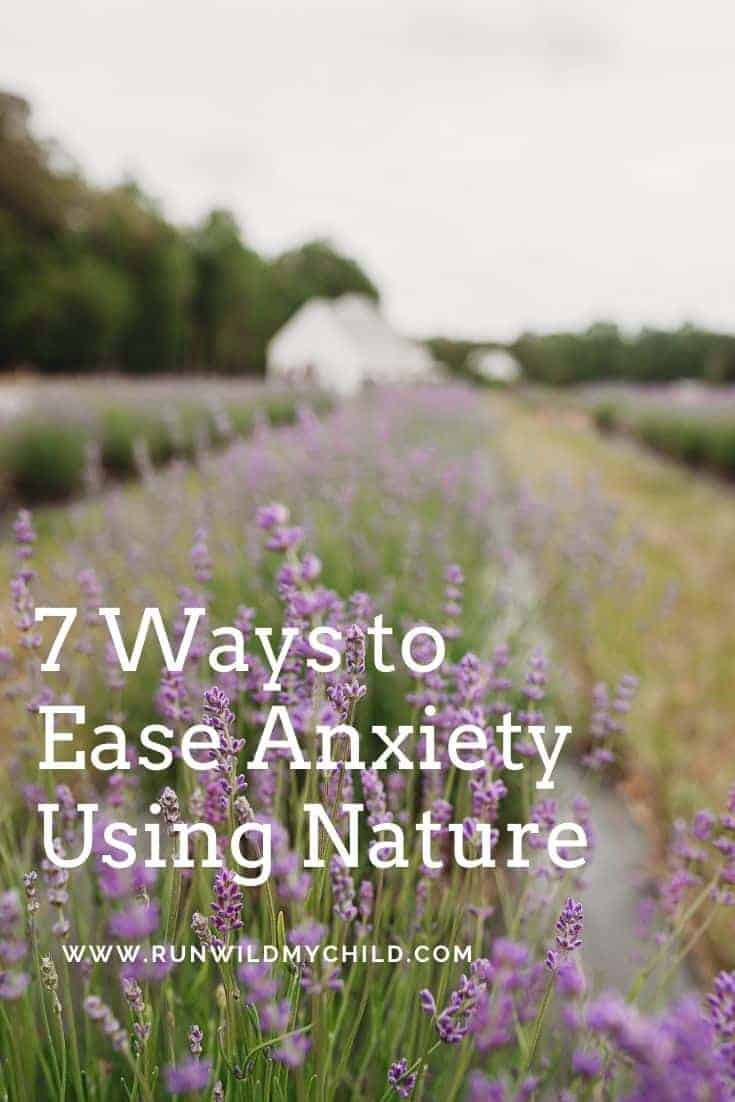
Easing anxiety with nature
Well, here we are…at the tail end of 2020. This has to be one of the most stressful years our generation has ever experienced. The unexpected and unprecedented global pandemic has likely added stress to your life. Parents, in particular, have had a massive amount to deal with on top of the everyday stressors we normally experience.
Often, lots of stress can lead to anxiety. I know this because I have anxiety and depression. I have to be extremely careful with myself and very intentional about how I live my life to be sure I don’t get stuck in a dangerous downward spiral. And anyone else who has anxiety and/or depression knows how difficult it can be to pull yourself out of a particularly difficult time.
Over the years, I’ve tried so many things to ease my anxiety and support my mental health. I’ve tried everything from therapy to medications to natural remedies, and every combination of them. I can tell you without a second of hesitation that for me personally, getting back to nature has helped me more than anything else. I know that many of you may be experiencing added stress and anxiety so I wanted to share my most impactful ways of easing anxiety during difficult times.
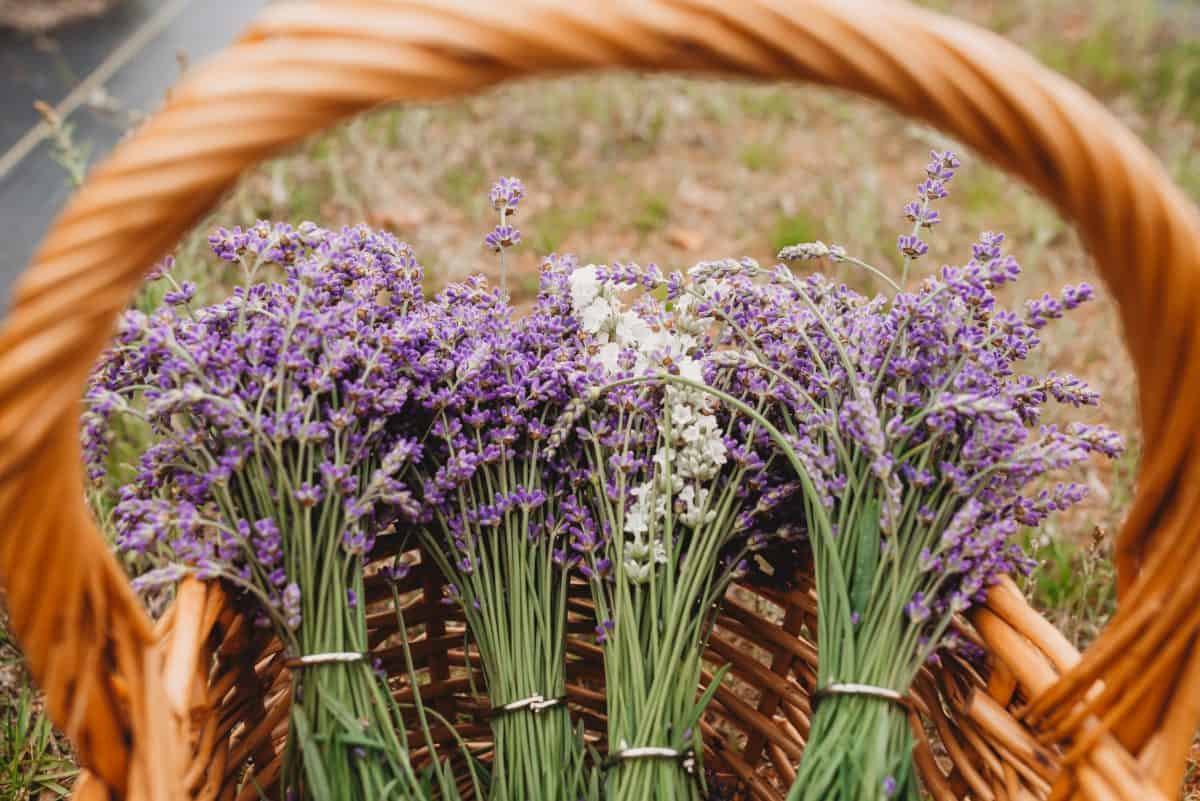
1. Get outside
Now I know this seems very basic, but getting outside can instantly stop an anxiety spiral. There is countless research that shows how spending time outdoors in green spaces is good for your physical and mental health. Make spending time outside a priority and reap the benefits of less stress, better health and lower anxiety levels.
Sunlight and fresh air
We hear all the time that it’s so important to get sunlight but I don’t think people take this seriously enough. Many people have a vitamin D deficiency. This can still be the case even in the summertime. We tend to forget that humans are animals and in the 200,000 years homo sapiens has existed, only VERY recently have we lived so much of our lives indoors. Even a few generations ago, people were spending most of their waking hours working outside.
Modern-day society has put us indoors much more than we’ve ever been, and evolution can’t change our make up that quickly. I would argue that humans simply haven’t adjusted to being inside so much. Our bodies desperately need the sunlight and we need the fresh air.
Fresh air is good for our bodies and minds. Anyone that’s spent any time wearing a mask recently knows just how wonderful fresh air can be. Deep breathing outside in the fresh air can do amazing things for your body and mind.
Sleep better
Spending lots of time outside helps with so many things, one of them being a reset of our circadian rhythms. This is crucial for establishing regular sleep patterns. Personally, lack of sleep is always a major trigger for my anxiety and depression. I have to be very aware of my sleep schedule. When I’m not getting enough sleep, my anxiety greatly increases. Spending lots of time outside really helps the body settle down at night and sleep better.
Exercise
When you’re spending more time outside, you’re also likely getting more exercise. Exercise is another thing people take too lightly when it comes to mental health. I know this because I was one of those people. When I’m starting to feel like my depression and anxiety are kicking back up again, I monitor how much exercise I’m getting.
Not only is exercise good for the health of your body, but it’s critical for the health of your brain. You need the endorphins that your body produces when you exercise. Walking, running, biking, and yoga are great activities to do while you’re spending extra time outside. 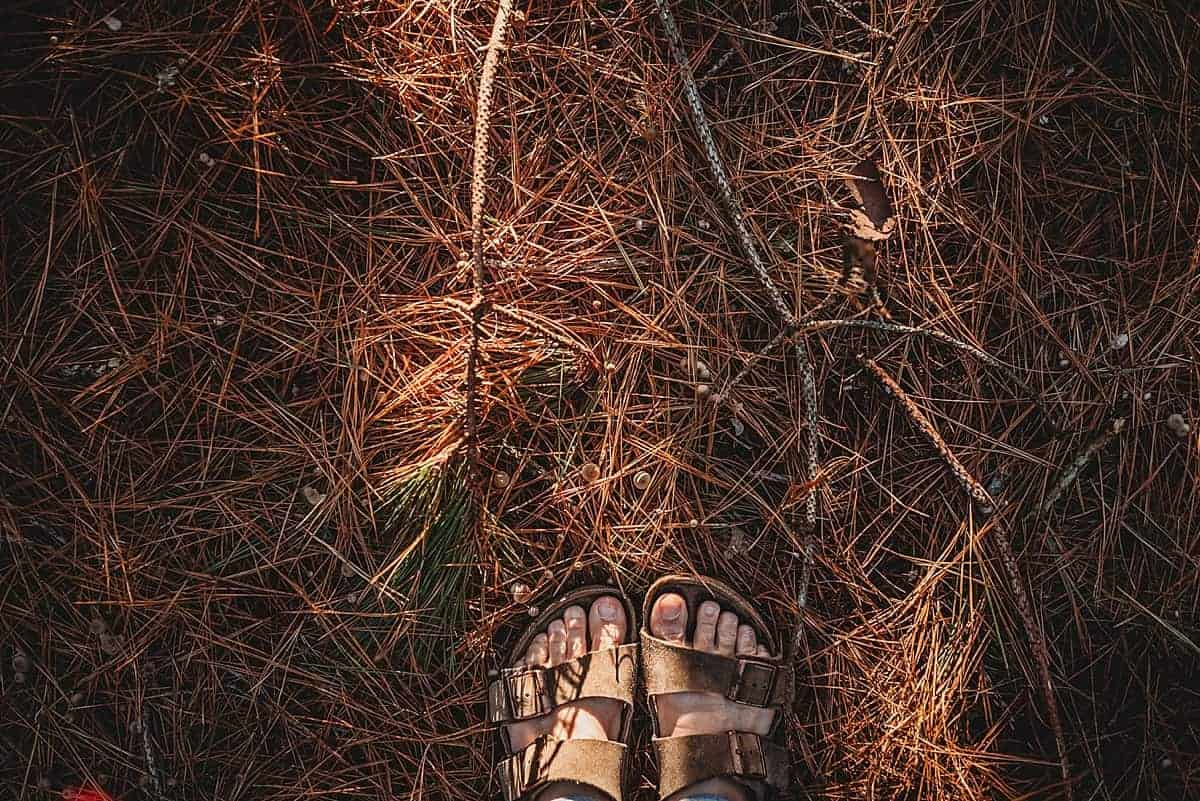
Mindfulness
Another practice I’ve found helpful for my anxiety is using mindfulness or meditation while I’m outside on a walk. Anxiety can put your brain in a pattern or a cycle. In order to get out of it, you need a pattern interruption. Taking a walk and using the 5-4-3-2-1 mindfulness method is a great way to ground yourself and bring your brain back to the present moment. It’s super easy and works wonders!
Just take a deep breath in and out. Then identify 5 things you can see, 4 things you can feel, 3 things you can hear, 2 things you can smell, and one thing you can taste. When I do this, I try to completely isolate each of those senses and remove any input from the other senses. You want to take your time with this grounding exercise and really slow down your body and brain. When you’re finished, take one more deep, cleansing breath. You’ll feel so much better!
Sit-spotting
The idea of sit-spotting is simple, but powerful: find a special place in nature and then become comfortable with just being there, still and quiet. In this place, nature let the nature around you soothe you, entertain you and seep into you. If you choose one particular place to do this repeatedly, sit-spotting gives you a personal and intimate place in nature which will soothe, comfort, and relax you instantly, as you get to know the location.
I recommend you find a place in or adjacent to a natural or semi-natural setting where you can sit and observe. Preferably, pick a place that’s close to home so you can get there easily whenever you need a mental break. Sit quietly there, observing nature around you with all of your senses. Listen for birds and other animals. Observe the colors and light. Touch the rocks and moss. Smell the fresh rain or snow. Visit your location in every season and vary the time of day (morning, noon, night) to see how your spot changes.
Check out this post for more useful information on sit spotting.
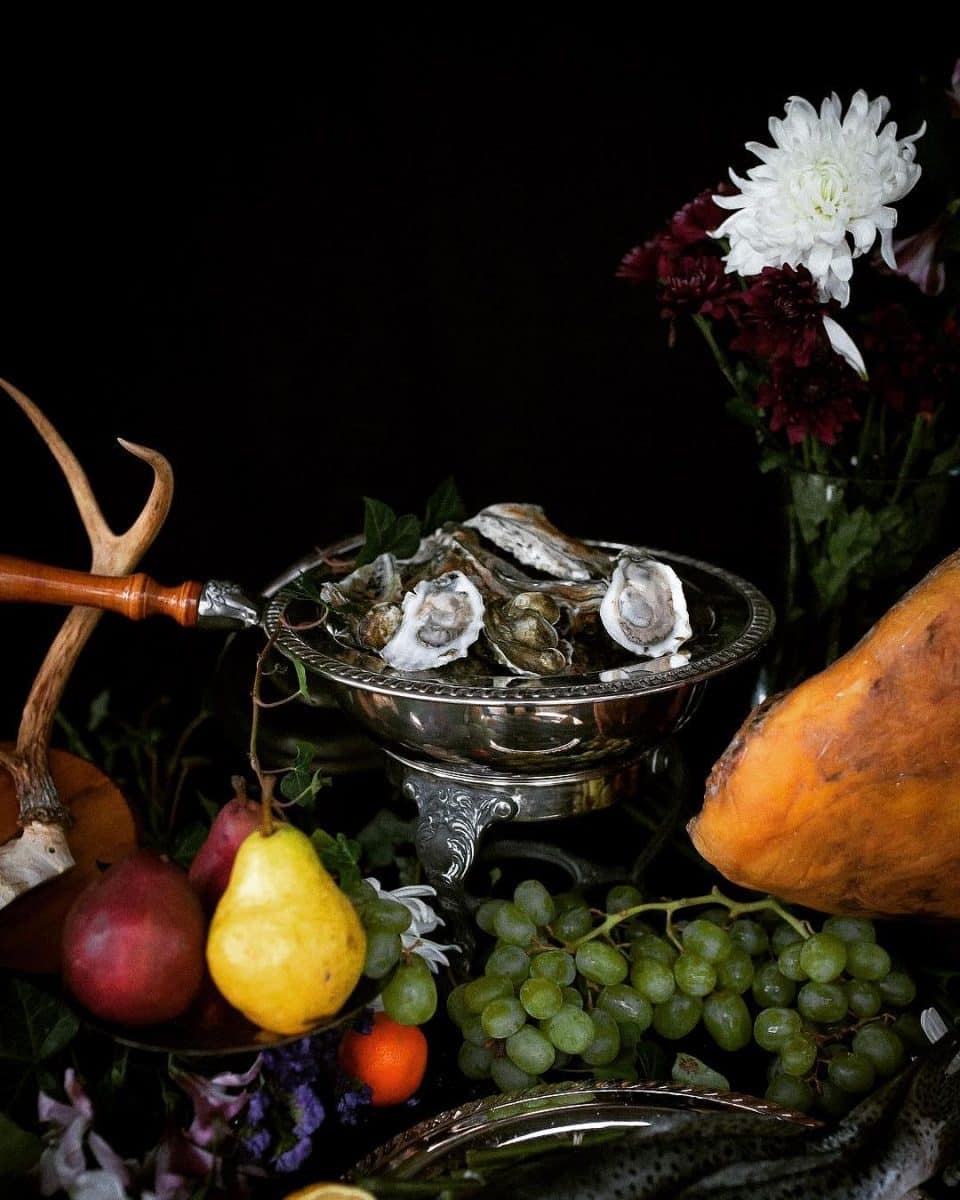
2. Eat clean
Cleaning up what you put into your body is another way to help improve your mental health. Mother Nature provides us with everything we need to nourish our bodies and make healthy new cells. Your body is always replacing your cells…why not make sure that the new cells you’re creating are healthy ones?
When I was desperately searching for answers to my own battle with depression and anxiety, I was having many odd physical symptoms in addition to the emotional ones. My psychiatrist looked at my medical charts and told me my declining physical and mental health looked similar to other patients she had with autoimmune disease.
Clean eating research
That sent me down an information-seeking rabbit hole, and I’m SO thankful it did. After doing tons of research, I changed my diet completely. Thanks to books like The Wahl’s Protocol and The Autoimmune Fix, I learned so much about how your body uses the food you eat to either make you healthy or make you sick.
Every person is different, and you’ll have to find what works for you, but I swear by the diet I’m permanently on. It has changed my life. It’s a big commitment but if you’re at the point where you’ll do anything to improve your mental health (like I was), it’s absolutely worth it.
The importance of good food
Adding large amounts of nutrient-dense foods is crucial to a properly functioning brain and nervous system. There is also a massive connection between your brain and your gut (which is also known as your second brain.) Nature can provide you with all the nutrients you need, you just have to make eating them a priority.
Do yourself a favor and start paying more attention to what you put into your body. How you feel afterward. Are there particular foods or meals that make you feel better? Or worse?
Bonus fact: Did you know that eating two or more handfuls of cashews a day, can have the same effect as Prozac? The high levels of tryptophan in cashews help to increase serotonin. Thanks, nature!
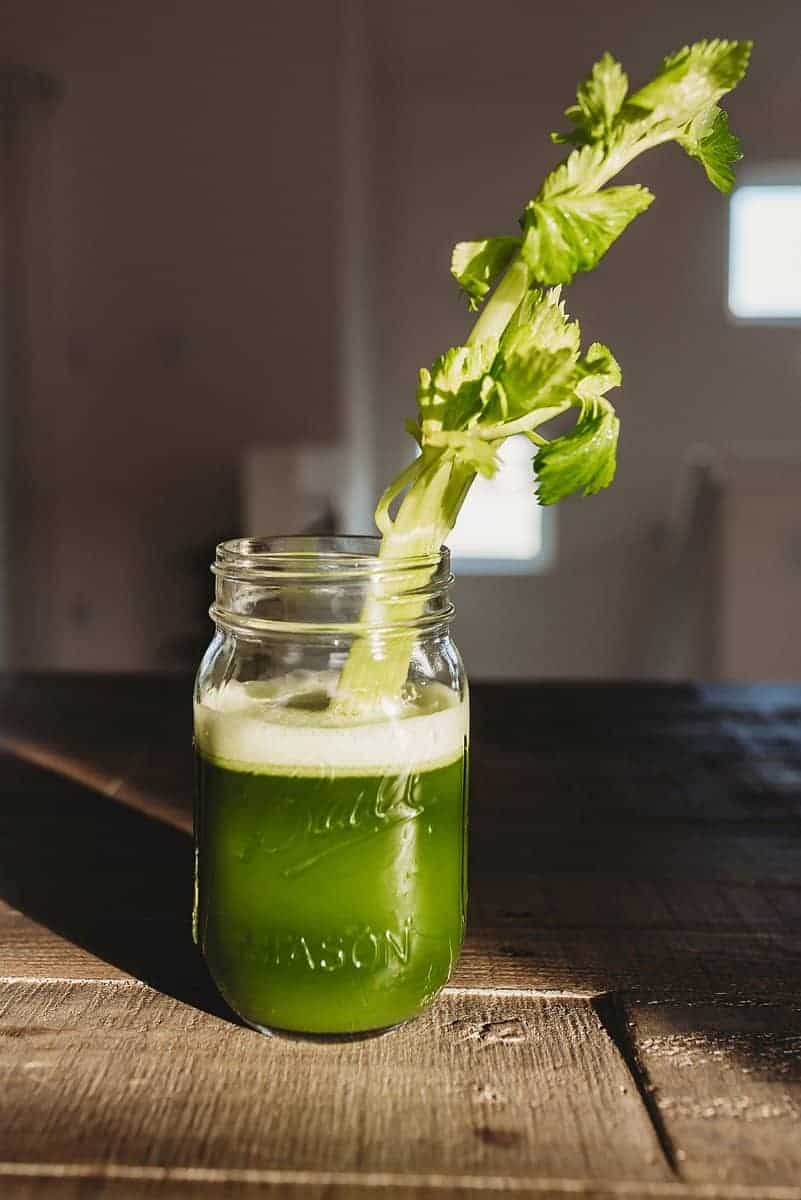
3. Supplements
In addition to honing in on your diet, you may want to consider adding some supplements to your daily self-care routine. Every person is different, but I’ve felt best when I’m taking a high quality fish oil, vitamin D3, vitamin C, and a B-complex. Fish oil supports brain health. Vitamin C supports the immune system. Vitamin D plays an important role in brain and nerve health, and mood regulation. And B vitamins help with energy levels, as well as brain and nerve functioning.
When my anxiety starts to get worse, I also add in my special anxiety-reducing tea. I add Holy basil and magnesium powder to chamomile tea. This is a great way to calm your muscles and nerves fairly quickly. I recommend Nature Calm magnesium powder to all my friends. Watch out, though. A little goes a long way with this stuff! You only need a very small amount to get the benefits.
CBD oil
The other supplement I use on a regular basis that has really been life changing for me is CBD oil. When it comes to CBD, you need to do your research. Not all CBD oils are created equally. I’ve tried various brands, types and strengths and it took quite a lot of trial and error to find the exact brand, strength, and dosage that works for me. It’s similar to a prescription medication in that way. It may take a little time to find what works for you.
I found that a small amount of CBD oil daily helps to keep my mood level, and then I take more as needed. When I know I’m going into a situation that can be a trigger for me, I take some of my oil about 20 minutes in advance. It’s been very helpful.
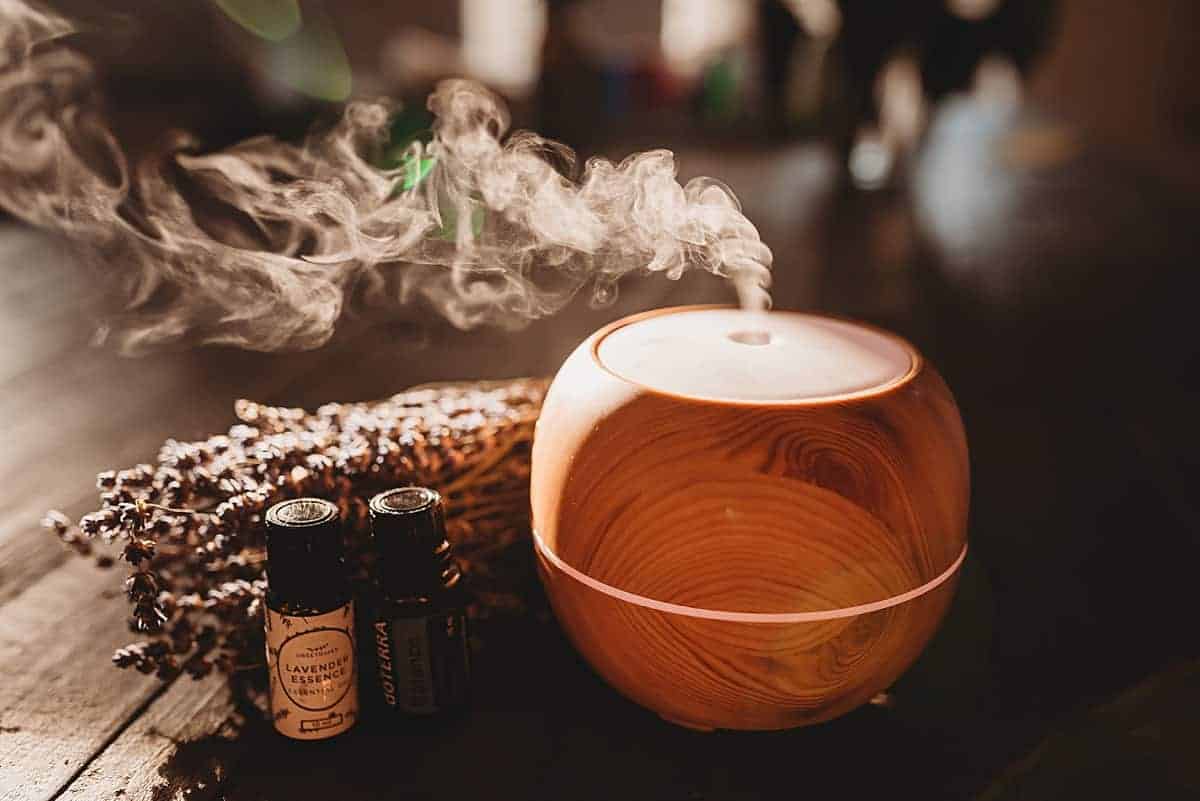
4. Essential oils
Speaking of oil, essential oils are another gift from nature that we can use to help ease anxiety. Aromatherapy has been used for thousands of years, dating back to ancient cultures in China, India, and Egypt. When I’m feeling stressed at home, I can often reset my body and brain by using some essential oils. This also helps my kids reset, so it’s a win-win!
At home, I use a diffuser with my oils. When I’m on-the-go, I love my lava rock jewelry. I just absorb a few drops of my favorite oil into the lava stone and I can smell it all day! Again, this is also great for my kids, too. They’ll often ask for my jewelry when we’re out in public or even riding in the car. They love it!
If you’re unfamiliar with essential oils, do some research. Different oils will have a different effect. Some oils can boost your mood and energy, while others can calm you down and help you sleep! You can change the oils to match what you need. Two of my favorite oils that help me calm down are lavender oil and a blend called Balance.
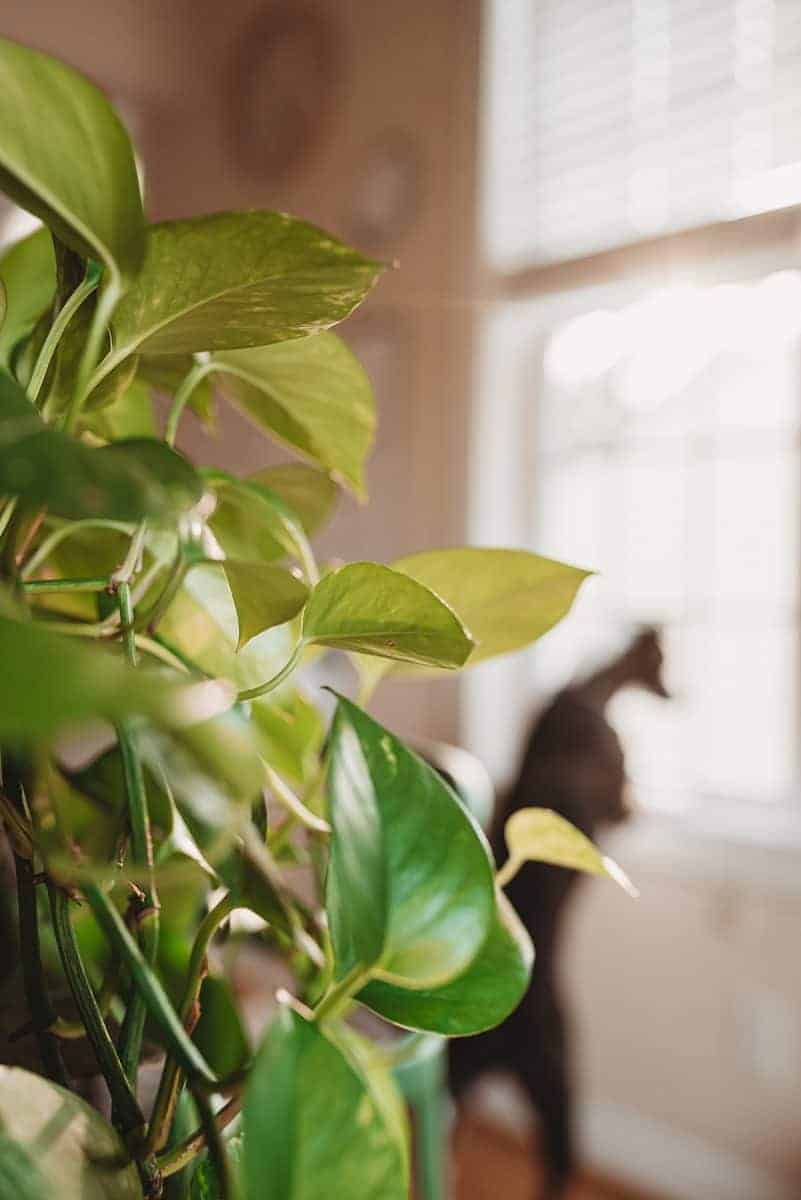
5. Plants
You may be seeing a recurring theme here. Not only can we benefit from plants by adding more of them to our diets and using plant oils, but we can also benefit from just surrounding ourselves with plants! Did you know that just having plants in your home can improve your mental health, improve your air quality, help you sleep better, boost your immune system and increase your productivity?! Amazing, right?
Gardening is another activity that can improve your mental health and help ease anxiety. You’ll get fresh air and sunlight, exercise, and the right kind of mental stimulation. There are two main modes of attention: focused attention and fascination. Focused attention is the kind you use at work, and too much of it can lead to stress. Fascination is the kind you use in hobbies and can help reduce anxiety when we’re feeling so much stress we can’t cope.
Gardening can help ground us and help us stay in the present moment. If you’re growing foods and herbs in your garden, you can also use the produce and herbs to heal you from the inside! One activity, but double the benefits for your mental health!
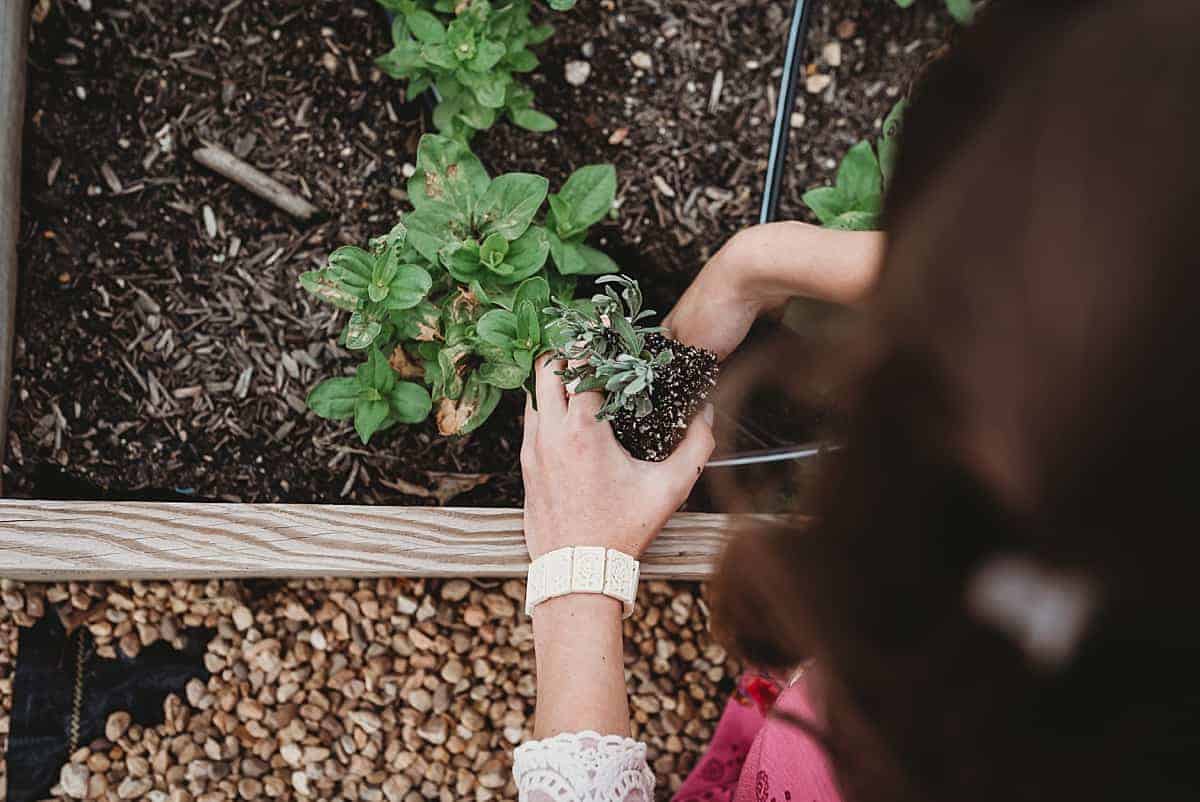
6. Animals
Whether it’s a household pet or a creature you meet in the wild, animals can be a great way to reduce stress and anxiety. I’ve found that having a dog in our home greatly reduces my anxiety levels. Having a warm pet snuggled up to me helps me slow down when I need to slow down. And on the flip side, my dog helps me get moving when I’m feeling sluggish. When the dog has to go out, I have no choice but to pull myself up and go walk him. It’s wonderful because once I’m outside for even a few minutes, I start to feel better. Pets can also be a needed distraction when you’re stuck in an anxiety loop. Distraction is a great way to interrupt a pattern or cycle, and pets are great for that!
If you’re not able to have a pet in the home, you can still enjoy the same stress-reducing benefits outside in nature. I’ve found so much joy just watching the birds that visit our bird feeder each day. We’ve become used to hearing their familiar chirps and songs each morning to start the day. We love watching them visit our window. Similarly, I’ve found it so comforting to visit the large waterfowl that live in the inlet nearby. I walk one trail regularly and often see the birds in their favorite spots. It’s wonderful to sit and watch them. It’s another activity that can help you embrace the present moment and stop the cycle of worrying. I’m not going to lie… I’m that person on the trails speaking out loud to each creature along the way. I always greet them with a “Hello, friend” and thank them for visiting with me. Yes, I do also say goodbye when I move on. (You talk to wild animals too, don’t you? It’s okay. I won’t tell.)
Check out this post for more info on the benefits of raising kids around animals.

7. Water
Get in the water! I know it sounds extremely cliché to say take a bath, but TAKE A BATH. Or a shower. Or even go for a swim, if that’s an option for you. The reason we even exist is because our planet has water. The planet is mostly water. Our bodies are mostly water. And water can be extremely calming for humans. If you have kids, you may have used a nice, warm bath to calm your baby. It can work just as well for adults!
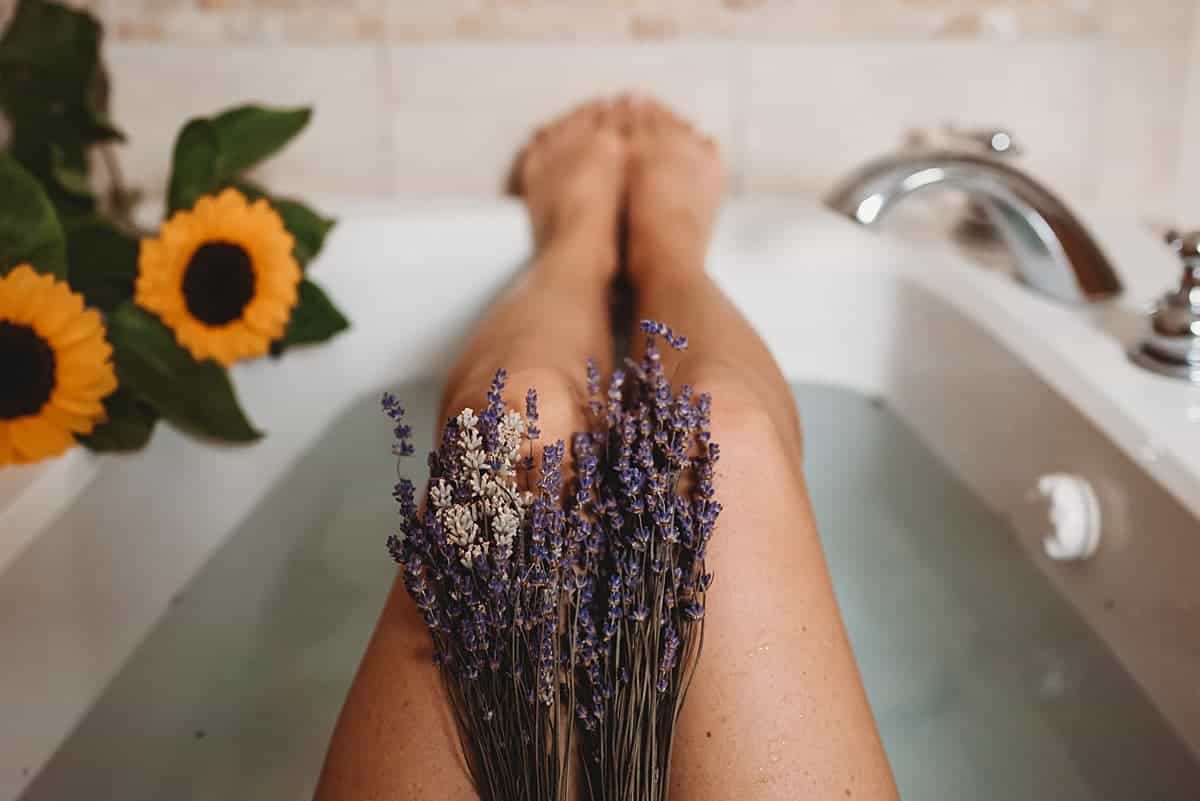
I’ll be honest, I was never a bath-taker until recently but it has been an amazing tool for me when coping with anxiety. It took a lot of work (which sounds weird, I know) but I had to practice sitting in a bath! I was so used to moving quickly from one thing to the next, that it felt very uncomfortable to just sit in a bath and relax. If this sounds like you, try starting with 5-8 minutes and then add a few minutes each time you’re in there. I found that listening to meditation music or a podcast like Affirmation Pod with Josie also helps!
Again, I know this one also sounds cliché, but drink more water. Seriously. Go get some right now. I’ll wait.
Great! Your body thanks you for that!
Your body takes in a lot of toxins every day. Not only are they unhealthy for you physically, but they’re unhealthy for your mental health. Drinking lots of water is one way you can help wash out those toxins. Water also helps your brain by preventing dehydration, which can cloud up your thinking. Your brain is about 75 percent water! And 1 in 4 adults is dehydrated right now. You need lots of water to make sure oxygen is flowing to your brain and ensure it has enough energy to produce serotonin. Dehydration can also be a trigger for panic attacks, so be absolutely sure you’re getting enough water every day.
Treating anxiety with nature
I know it seems simple. Almost too simple. But truly the most effective treatment for my own depression and anxiety has been to get back to basics. Get back to nature. Get closer to the life our bodies and minds lived for millions of years, before modern-day society changed everything.
Three weeks. Do these things for three weeks consistently, and then reassess how you feel. I think you’ll be amazed.
And if you don’t see improvements, or ever find yourself in a situation where you’re truly struggling, please ask for help. These are difficult times for everyone. You’re not alone. You can find a list of free, 24-hour helplines here. Don’t ever be afraid to pick up the phone and call.
What are your favorite nature-based ways to improve your mental health?
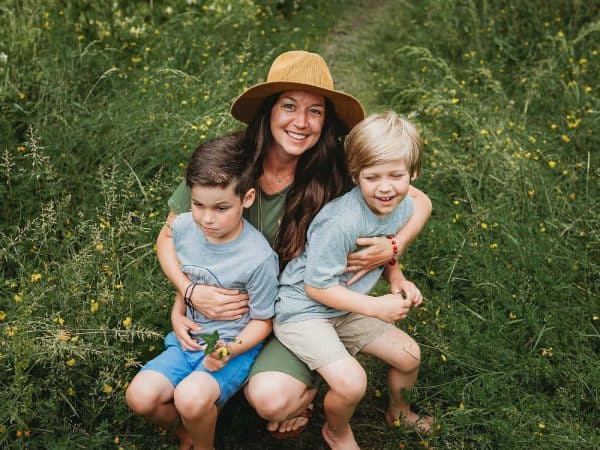
About the author
Chelsea is a photographer, a mother of two busy boys, and a sunshine and fresh air addict. Her family lives in Virginia Beach, and they spend as much time outdoors as they possibly can! Most of their outdoor adventures involve exploring the beach, inlets, and nature trails nearby. They love biking, hiking, paddleboarding, kayaking, building forts, and playing in the sand! During the warm months, you can find them enjoying the Chesapeake Bay almost every night until long after the sun goes down. They’re doing our best to reduce their carbon footprint and always try to leave every trail cleaner than it was when they arrived.
You can find Chelsea online in the following locations:
Instagram: @dimples.and.the.blonde
Website: dimplesandtheblonde.com
RWMC posts: Chelsea Furlong
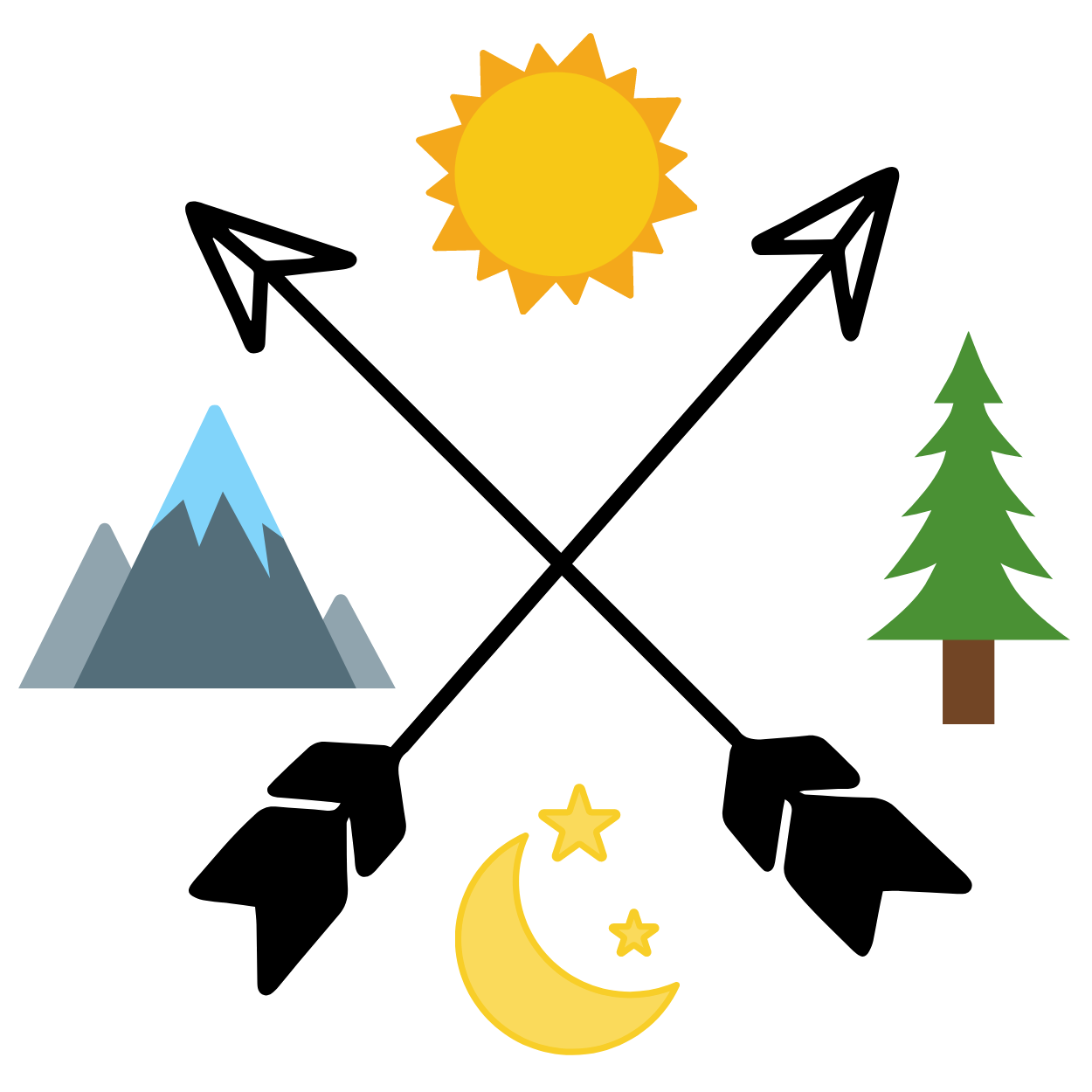
Leave a Reply